#hashtag rupaul???
Explore tagged Tumblr posts
Text
been thinking about tadc jax crossdresser theory again and imagine if his “super secret room” is actually just a backstage vanity full of ala trixie mattel drag gowns and kaufmo is his ex boyfriend or something. sorry i just think our preconceived notions of “JAX IS AN NPC!!!!!” and “JAX’S SECRET IS ABOUT HIS HORRIBLE AND PROBABLY ILLEGAL PAST!!!!” having transitioned to “JAX IS FRUITY!!!!!!” is very comical. can’t wait for the next episode where pomni and the gang gets to meet rupaul.
#tadc#digital circus#the amazing digital circus#jax#tadc jax#gooseworx#kaufmo#jax tadc#hashtag rupaul???
31 notes
·
View notes
Text

Sylvester, Blacula, Bushwick, Brooklyn, 2024
Photo: Bruce Morrow
#the moment that#the moment that we are today#hashtag#hashtagupmyass#photographers on tumblr#original photography on tumblr#bruce morrow#brucemorrow#bruce-morrow#my art#myart#sylvester#voxgma#Paris Hilton Als#artists on tumblr#on iphone#themomentthat#blacula#Halloween#drag#rupaul's drag race
7 notes
·
View notes
Text

She back with more head cannons about these two however wanted to be more positive this time
-Hashtag introduces Starscream to the internet mostly form post like Reddit
-This has end up badly because most of the time they spend trolling on the forms or laughing about them wiki tutorials.
-If Hashtag mention she wanted something Starscream will be the first to go and find it. One time he stolen a switch. The only reason he got found out was Dot got a call saying a game shop was missing the front side of the building. He wasn't sorry....
- Hashtag and Starscream have created a music play list for each person and robot.
Megatron is "the imperial march"
Optimus Prime is "Bonnie Tyler holding out for a hero"
This has anger Megatron as Dot phone has the theme tune under his account.
- Slowly the family started trusting Starscream so he take Hashtag out to see the sunset and they talk about anything
- If you upset Hashtag in anyway Starscream will 100% come and get you. Not in a violent way sadly...unless your Megatron
- Starscream love to voice his opinion this can leave with himself and Dot having a deep conversation about government and anything happening on the news.
- Starscream never gets Alex...like why is he a bumblebee fan...it's just a car....
- Starscream is the main teacher for flying lessons.
- When Prime does his long monologues you bet Starscream will lose interest in less than 30secs.
-Hashtag start making meme videos and will show Starscream first before anyone else.
- Starscream teach Hashtag Cybertron swearing
- Hashtag and Starscream love watching these shows.
Rupaul drag queen - the drama and fashion
US office - the meme
Brooklyn 99 - you can hear them quoting the show
#earthspark hashtag#earthspark starscream#starscream#hashtag#tf earthspark#earthspark#earthspark spoilers#headcannons
143 notes
·
View notes
Text
reasons to get into zb1 and i'm so serious when i say that i can get ANYONE reading this interested in them even just a TINY BIT
1. zhang hao, member of zb1 who ranked 1st in the entire survival show that formed the group, is HETEROPHOBIC. and i'm not exaggerating. he actually is ❤️

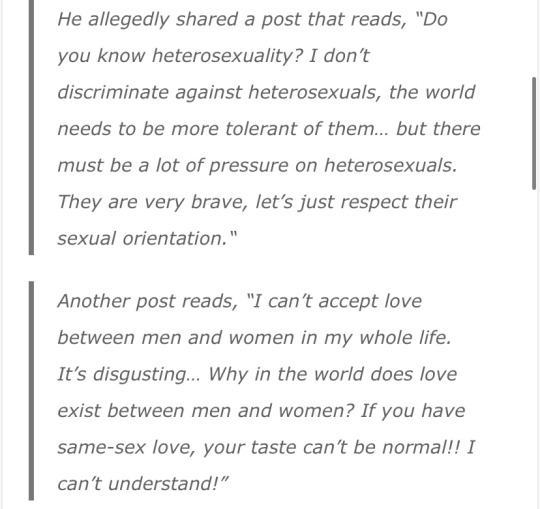
2. sung hanbin, member who ranked 2nd place, dancing to call me mother by rupaul. this video is so addicting also he was like 19 here
3. kim taerae, member who ranked 6th place, making people fall for him because he is a fucking loser. awesome. we love to see it. and he wasn't even confirmed to be in zb1 yet when this was tweeted
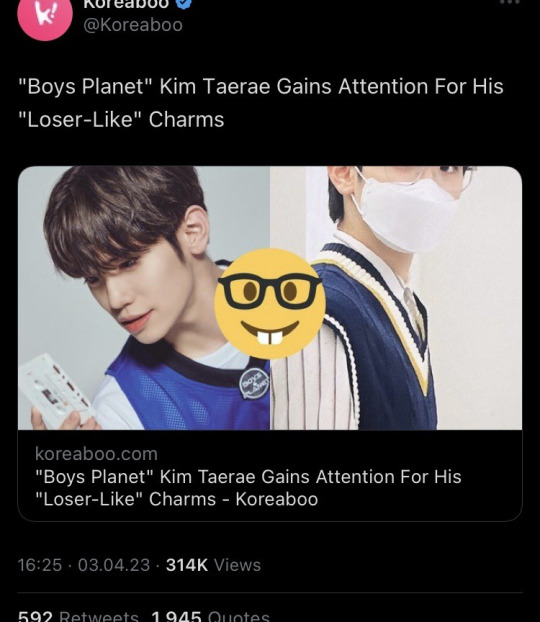
4. kim gyuvin, member who ranked 7th place, having to be told by the staff of the boys planet show to sit properly on his 7th place seat because he was sitting on the floor etc. and kept on fucking jumping like 30 meters high whenever another member got announced. he's so crazy you can't take him ANYWHEREEEEE!!!!!
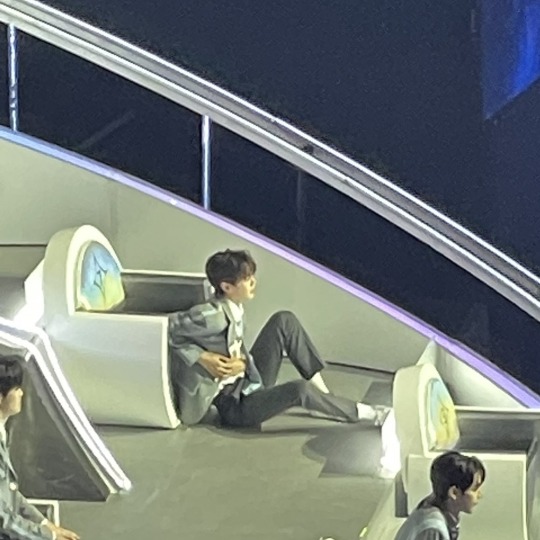
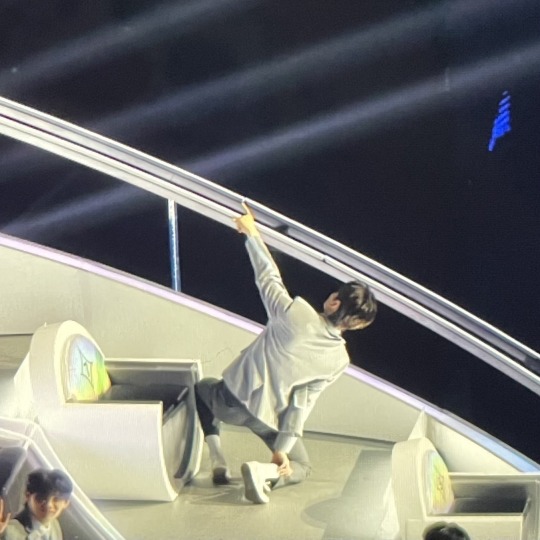
5. ricky, member who ranked 4th place, has a catchphrase that goes like this: "young and rich, tall and handsome. my name is ricky". on april fools he made a video of himself saying "old and poor. short and ugly" instead. i wish i could insert it here but you can only put one video per post
6. jiwoong, member who ranked 8th place, is known for being an actor, specifically for bl 🤓.... enuf said
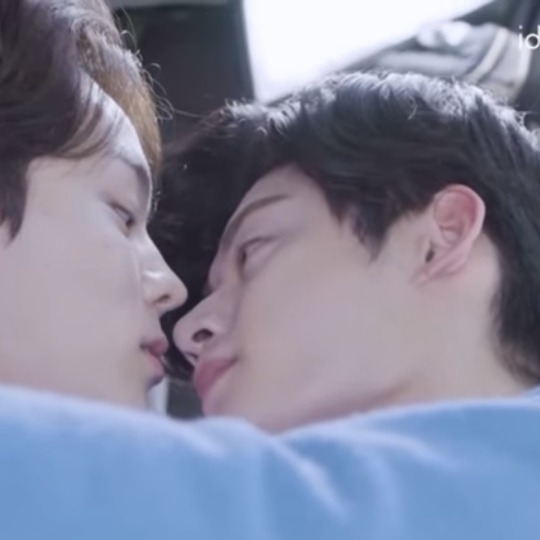
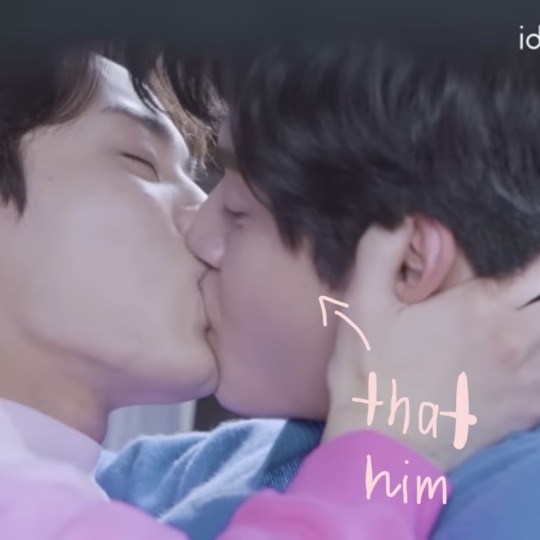
(name of the drama is roommates of poongduck 304, if anyones interested)
7. members zhang hao and sung hanbin not being able to let go of eachother during the finale and going viral because they're just. two homies who are infatuated with eachother ..🏳️🌈 yaaay
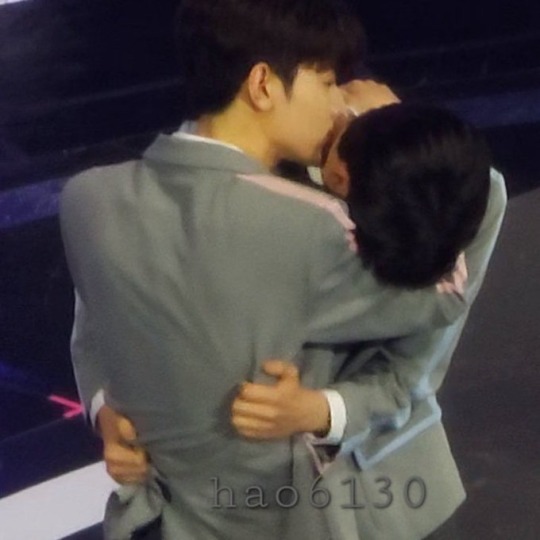
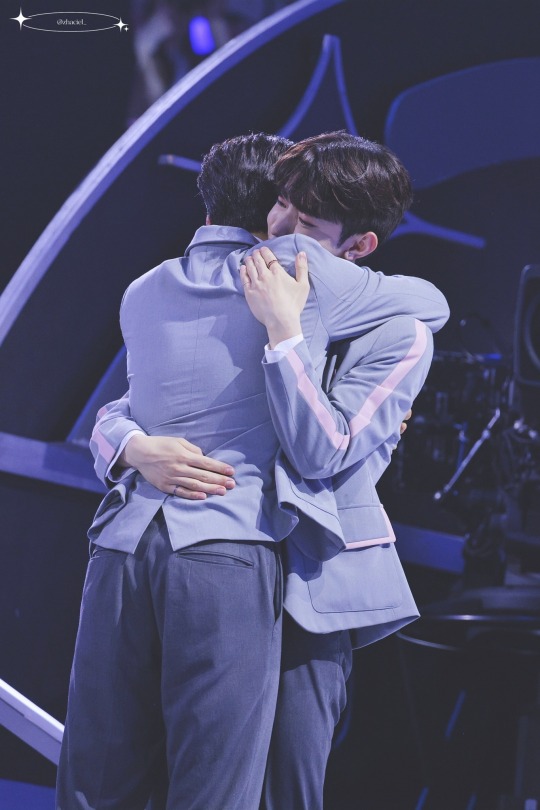
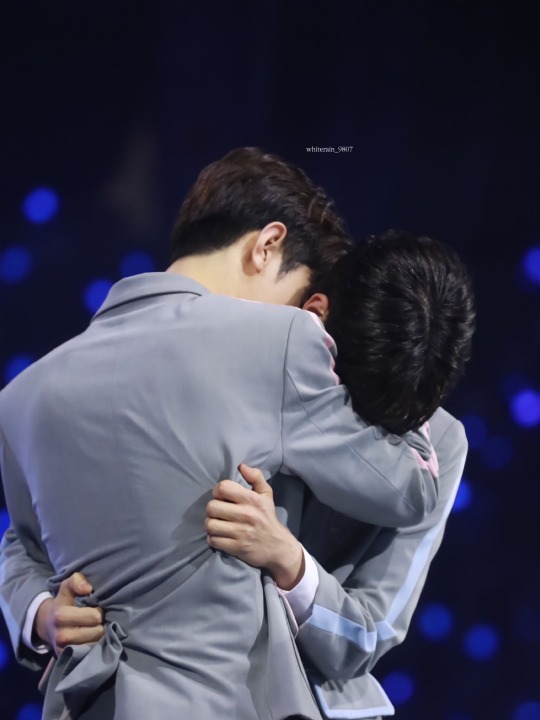
(this moment got more angles than the jfk assassination)
there's so much more but i will stop here before the list gets too long. have a nice day like and subscribe #HASHTAG
35 notes
·
View notes
Text
Week 4: Reality TV in the Age of Social Media and the case of RuPaul's Drag Race

Reality TV has undergone a significant transformation in the age of social media, creating a complex web of interactions between stars, fans, and producers. One striking example of this phenomenon is RuPaul's Drag Race, which has not only expanded its visibility but also fostered dynamic digital communities that engage with the show's content on multiple platforms.
Reality TV has long been a staple of modern entertainment, and as noted in academic discussions, it has the power to elicit shared opinions and foster public discussions, especially on social issues like gender, sexuality, and discrimination. This interactive nature is amplified by social media, where platforms such as Twitter, Instagram, and YouTube enable fans to express their opinions, engage with reality stars, and become part of digital communities, or "digital publics" (Chung & Cho 2014). These spaces offer avenues for discussions that extend beyond the screen, as fans dissect show episodes, share memes, and debate contestants' behaviors. The dialogue often extends to broader social issues, making reality TV a vehicle for political and cultural discourse.
In the case of RuPaul's Drag Race, this convergence of reality TV and social media is particularly noteworthy. Since its debut, the show has garnered a massive following not just for its entertainment value but also for its role in shifting the visibility of drag culture. Drag, once a subcultural practice, has been propelled into the mainstream by the show, creating a space where diverse identities are celebrated and debated (Zaslow 2022). Social media plays a pivotal role in this shift, as fans rally around hashtags, form digital fandoms, and engage in discussions that challenge or affirm societal norms regarding gender and sexuality.
The show thrives on its ability to generate drama, not only through its televised content but also through the digital texts created by its stars and fans. This duality of on-screen and online performance has become a hallmark of reality TV in the social media age. Contestants on RuPaul's Drag Race often extend their personal brands beyond the show, interacting with fans through platforms, especially through Instagram, where they share their thoughts, promote their performances, and participate in ongoing conversations about the show. These interactions contribute to the creation of "digital publics"—spaces where fans engage in meaningful discussions, often touching on issues like representation, body politics, and LGBTQ+ rights.

The competitive nature of reality TV is also intensified by social media. Contestants are encouraged to reveal intimate details of their lives, making their online presence just as important as their on-screen performance. This creates a feedback loop where the audience's engagement on social media directly influences the contestants' popularity and, by extension, their career prospects post-show (Reimer 2023). In this way, RuPaul's Drag Race not only entertains but also functions as a platform for personal branding, with social media amplifying the contestants' reach and influence.
Moreover, RuPaul's Drag Race serves as an example of how reality TV can act as a "trigger of everyday political talk" in the net-based public sphere (Graham & Hajru 2011). Fans of the show often engage in discussions about broader societal issues such as race, gender, and sexuality. These conversations are not confined to the show itself but spill over into social media, where digital publics critically engage with the cultural implications of the show's content.

In conclusion, RuPaul's Drag Race exemplifies how reality TV in the age of social media has evolved into a multifaceted phenomenon, where entertainment, digital community-building, and socio-political discourse intersect. Social media has expanded the reach of reality TV, allowing fans to participate in digital publics that discuss not only the show but also broader cultural and political issues. This engagement has turned RuPaul's Drag Race into more than just a television show—it's a cultural touchstone that reflects and shapes contemporary conversations about identity and representation.
Reference
Chung, S & Cho, H 2014, ‘Parasocial relationship via reality TV and social media’, Proceedings of the 2014 ACM international conference on Interactive experiences for TV and online video - TVX ’14, pp. 47–54, viewed https://dl.acm.org/doi/abs/10.1145/2602299.2602306.
Graham, T & Hajru, A 2011, ‘Reality TV as a trigger of everyday political talk in the net-based public sphere’, European Journal of Communication, vol. 26, no. 1, pp. 18–32.
‘How has RuPaul’s Drag Race succeeded in social media world domination – Favoured.’ n.d., favoured., viewed https://favoured.co.uk/how-has-rupauls-drag-race-succeeded-in-social-media-world-domination/.
Reimer, T 2023, ‘Environmental factors to maximize social media engagement: A comprehensive framework’, Journal of Retailing and Consumer Services, vol. 75, pp. 103458–103458, viewed https://www.sciencedirect.com/science/article/pii/S0969698923002059.
Zaslow, S 2022, ‘Mainstream novelty: Examining the shifting visibility of drag performance’, Sexualities, vol. 27, no. 1-2, p. 136346072210914, viewed https://journals.sagepub.com/doi/10.1177/13634607221091447?icid=int.sj-abstract.citing-articles.1.
0 notes
Text
hashtag high school assthetic (and rupaul)
ive been at a public high school and i have been genuinely shocked at how amazing it is compared to private school like i know private school is supposed to be better but i haven’t burned out in the month that ive been here?!?!?!?! like holy shit i know its not the best thing in the world but like??? so much better than like 2 hours of homework every night and people hating me. imo its better to…
0 notes
Text
Week 4: Digital Community and Fandom - Reality TV Case Study

Big Brother
In the digital age, the rise of Reality TV has brought with it not only entertainment but the formation of vibrant digital communities and passionate fandoms. From the early days of "Big Brother" to modern phenomena like "RuPaul's Drag Race", reality TV has become a cultural force that extends beyond the screen, fostering spaces where viewers engage, connect, and create. This post delves into the symbiotic relationship between reality TV and its digital communities, using relevant media and communication theories to analyze this phenomenon.
The Role of Reality TV in Creating Digital Communities
Reality TV excels at fostering participatory culture, a concept coined by media scholar Henry Jenkins. Unlike traditional television, where audiences passively consume content, reality TV invites active engagement. Through online forums, social media platforms, and fan sites, viewers become part of a larger digital community, where they not only consume but contribute to discussions, theories, and fan-driven content.

Henry Jenkins
Fandom as a Digital Community
Fandoms—groups of devoted fans—are a key component of reality TV’s success. These communities operate as affinity spaces, where members share a common interest and exchange ideas, interpretations, and emotions. Shows like "The Bachelor" and "Love Island" have inspired dedicated online groups, where fans dissect episodes, speculate on upcoming events, and even form emotional bonds with the contestants. These spaces allow fans to extend the reality TV experience beyond the weekly episode and into their everyday lives.
Jenkins' Theory of Convergence Culture highlights the merging of media producers and consumers, emphasizing that reality TV fans don’t just passively consume content—they remix, recreate, and reinterpret. This is evident in fan-made content, such as memes, fan fiction, and commentary videos that add layers of meaning to the show’s narratives.
The Power of Social Media in Reality TV Fandoms
One of the most significant shifts in the reality TV landscape is the role of social media platforms like Twitter, Reddit, and Instagram in amplifying fan engagement. These platforms have created a space where fans can interact in real-time during broadcasts, contributing to a communal viewing experience known as "second-screen viewing."
Hashtags such as #Survivor or #BacheloretteNation are tools for fans to congregate online, where they live-tweet episodes, share theories, and vote on fan polls. This creates a sense of immediacy and collective participation, blurring the line between audience and participant.
Reddit forums and Facebook groups are particularly important for more in-depth discussion and analysis. These digital communities become incubators for fandom activities, including episode deconstructions, contestant analysis, and even social activism related to issues raised on the show.
Social media has also democratized fan interaction with the stars of reality TV. Platforms like Instagram and TikTok allow fans to directly engage with contestants, following their post-show lives and contributing to their digital personas. This interaction fosters parasocial relationships, where fans feel as though they have a personal connection with reality stars, despite the one-sided nature of the relationship.
Case Study: "RuPaul's Drag Race" and Fandom Culture

"RuPaul's Drag Race"
"RuPaul's Drag Race" provides an excellent case study for exploring the relationship between reality TV, digital communities, and fandom. The show, which has cultivated a global following, has spawned one of the most dedicated and active fanbases across various platforms.
Instagram and Twitter have become hotspots for fan content, where users post critiques, fan art, and memes celebrating their favorite queens. The show’s use of hashtags like #DragRace encourages viewers to join the conversation, creating a large-scale, participatory environment.
YouTube hosts reaction videos, analysis channels, and even behind-the-scenes breakdowns from former contestants, further solidifying the show’s place in digital culture. Fans engage in debates about performances, costumes, and eliminations, turning each episode into a focal point for online discourse.
Digital activism is also a component of "RuPaul’s Drag Race" fandom. Fans often use the platform to raise awareness about LGBTQ+ issues, linking the empowerment narratives of the queens to broader societal conversations about gender, sexuality, and identity.
The evolution of fan labor, where fans contribute their own creative energy to the community (e.g., making art or writing fan theories), demonstrates how reality TV fandoms thrive on collective intelligence—a term used by Jenkins to describe how fans pool their knowledge and skills to enhance their collective understanding of the show.
Fan Empowerment and the Commodification of Fandom
While reality TV fandoms are often empowering spaces where fans can connect and express themselves, there is also a commercial aspect to their existence. The relationship between digital communities and reality TV producers is often symbiotic, but also exploitative. Networks and producers recognize the value of engaged fandoms and often cater to them to generate profit.
Merchandising and branded content allow producers to monetize the fandom, turning engagement into revenue. Shows like "The Real Housewives" and "Keeping Up with the Kardashians" have perfected the art of selling branded products and licensing their personal brands, effectively commodifying fandom enthusiasm.
This commodification can blur the lines between authentic fan engagement and commercial exploitation. Fans may feel empowered by their role in the community but also used as consumers, where their participation is encouraged as long as it benefits the show’s bottom line. This dynamic speaks to the capitalist underpinnings of many digital platforms, which thrive on user-generated content and community engagement to fuel advertising and product sales.
Challenges of Toxic Fandom and Online Harassment
While reality TV fandoms often create positive communities, there is a darker side to fandom culture. The anonymity of digital platforms can sometimes foster toxic behavior, where contestants and fellow fans are subjected to cyberbullying, harassment, and trolling.

Shows like "The Bachelor" have seen contestants endure online abuse, particularly female and minority contestants who face harsher scrutiny. This highlights the importance of digital ethics in managing online communities, where producers and platforms must balance engagement with safeguarding participants' well-being.
In response, some shows have started addressing these issues by discouraging harassment and promoting positive fan interactions. This points to a growing awareness of the responsibility that comes with managing large digital communities.
Conclusion:
Reality TV has transcended the boundaries of traditional entertainment to become a cultural and social phenomenon, with digital communities playing a pivotal role in its success. Through platforms like Twitter, Instagram, and Reddit, fans have turned reality TV into a participatory experience, where they can express their identities, challenge societal norms, and even drive real-world change.
However, the balance between empowering fan engagement and commodifying fandom remains a crucial tension in this digital age. As reality TV continues to evolve, so too will the ways in which fans engage, interact, and reshape the cultural significance of the genre.
References:
Jenkins, H. (2006). Convergence Culture: Where Old and New Media Collide. New York University Press.
Hills, M. (2002). Fan Cultures. Routledge.
Andrejevic, M. (2008). Watching television without pity: The productivity of online fans. Television & New Media, 9(1), 24-46.
Baym, N. K. (2000). Tune In, Log On: Soaps, Fandom, and Online Community. Sage Publications.
#mda20009
0 notes
Text
🌐 Week Four: Queer Visibility and Reality TV in the Social Media Age 🎬
Welcome to Week Four of our deep dive into digital communities and the ever-evolving landscape of Reality TV and Queer Identities. As reality TV remains one of the most pervasive forms of modern media, its role in representing LGBTQ+ communities has grown considerably. However, as we explore in this week's readings, the impact of reality TV on queer identities is far from straightforward. This post will examine how reality TV, coupled with the power of social media, shapes and sometimes distorts the visibility of LGBTQ+ identities.
🌈 Queer Representation on Reality TV: Progress or Pitfall?
Reality TV has served as an essential platform for LGBTQ+ visibility, bringing queer identities into mainstream media. Early shows like The Real World: San Francisco (1994), featuring Pedro Zamora, played a monumental role in normalizing conversations about queerness and HIV/AIDS (Lovelock 2019). Zamora’s presence marked a cultural shift, illustrating that LGBTQ+ people were not just side characters but critical contributors to the narratives of reality TV. Such representations have helped pave the way for broader queer visibility, including on shows like RuPaul’s Drag Race, which has become a global phenomenon.
However, with visibility comes complexity. Lovelock (2019) argues that reality TV often reduces queer identities to particular “scripts” or “archetypes,” reinforcing stereotypes rather than offering nuanced portrayals of LGBTQ+ lives. This creates a paradox: while visibility is increased, the diversity and complexity of queer experiences are often reduced to marketable caricatures. The portrayal of gay men as flamboyant, emotional, or overly sexualized, for instance, limits public understanding of the queer experience, turning it into entertainment rather than authentic representation.
📺 The Impact of Social Media on Queer Visibility
The rise of social media has had a profound effect on how reality TV is consumed and discussed, particularly in relation to queer identities. Platforms like Twitter allow fans to engage in real-time discussions during episodes, creating a dynamic space where viewers actively participate in the creation of queer discourses. As Deller (2019) notes, hashtags such as #DragRace not only amplifies queer representation but also gives viewers a platform to critique, celebrate, and extend the show's narratives long after the episodes air. Social media brings liveness to reality TV, making participation feel immediate and communal.
However, this increased engagement comes with its own set of challenges. Social media often reduces complex discussions into soundbites, encouraging oversimplified views of queerness. Memes, while humorous, can further reinforce the archetypes already established by reality TV. For example, a meme of RuPaul saying "Shantay, you stay!" may seem harmless, but it also continues to frame queer identities through a narrow lens of camp, entertainment, and spectacle (Deller 2019). The commodification of queer identities becomes even more evident when these memes go viral, circulating within and beyond LGBTQ+ communities.

🤳 Queer Performances & Authenticity: The Reality TV Paradox
Reality TV thrives on the concept of authenticity, yet it paradoxically constructs its own versions of what it means to be “real” in queer life. Shows like RuPaul’s Drag Race demand participants to be true to themselves while performing hyper-stylized versions of queer culture. As Banet-Weiser (2012) points out, reality TV’s obsession with authenticity often translates into a commodification of the self, where participants must brand their identities to succeed.
This commercialization of queerness extends beyond the screen, as reality TV stars increasingly use social media platforms to maintain their visibility and extend their fame. According to Deller (2019), reality show participants like drag queens from Drag Race have leveraged platforms like Instagram to build personal brands, turning their queer identities into profitable ventures. This presents a double-edged sword: while these platforms offer agency and visibility, they also tie success to the marketability of one’s queer identity, reinforcing capitalist structures even within queer communities (Banet-Weiser 2012).
🏳️🌈 Critiques of Queer Representation in Reality TV
While reality TV has opened the door to LGBTQ+ representation, it has not been without criticism. Shows like Fire Island have sparked backlash for their portrayal of gay men, reinforcing stereotypes of hedonism and emotional volatility (Lovelock 2019). Critics argue that these depictions do more harm than good by perpetuating narrow representations of queer life. As noted by Scott (2017), such portrayals often fail to capture the diversity of queer experiences, reducing LGBTQ+ individuals to one-dimensional caricatures. This criticism extends to broader discussions of reality TV as a space where only certain types of queerness - those deemed marketable - are represented.

This split image contrasts two eras of queer visibility in reality TV.
Left Side: A black-and-white drawing of Pedro Zamora from The Real World: San Francisco features a 1990s TV set and a red AIDS awareness ribbon, symbolizing his pioneering activism for HIV/AIDS awareness and LGBTQ+ rights. The San Francisco cityscape in the background emphasizes the historical and serious nature of queer representation during this time, where visibility was rooted in activism and advocacy.
Right Side: The colorful and vibrant side features RuPaul from RuPaul’s Drag Race, surrounded by neon lights, makeup brushes, and the iconic phrase “Shantay, you stay!” with rainbow flags and dollar signs in the background. This side illustrates the evolution of queer visibility into modern mainstream entertainment, highlighting both the celebration and commercialization of queer identities in today’s media.
Together, the image illustrates the shift from activism-driven representation to market-driven entertainment, showcasing both the progress and challenges in queer visibility on television.
References:
Banet-Weiser, S 2012, Authentic™: The Politics of Ambivalence in a Brand Culture, New York University Press.
Deller, R 2019, Reality TV in the Age of Social Media, Emerald Publishing Limited.
Lovelock, M 2019, Reality TV and Queer Identities, Palgrave Macmillan, <https://link.springer.com/book/10.1007/978-3-030-14215-5>. Scott, HA 2017, 'This Isn’t What It’s Like to Be a Gay Man’, The Advocate, <https://www.advocate.com>.
0 notes
Text

Loni Love (July 14, 1971) is a comedian, television host, actress, author, and former Electrical Engineer. While working in the early 2000s, she switched to Music Engineering, launching a career in stand-up comedy. She was the runner-up on Star Search 2003 and was named among the “Top 10 Comics to Watch” in both Variety and Comedy Central in 2009. She was one of the co-hosts of The Real.
She was born in Detroit and grew up in the Brewster-Douglass Housing Projects. After graduating from Cass Technical High School, she worked for a time on the General Motors assembly line putting doors on Oldsmobile Cutlasses, work which ignited her interest in Electrical Engineering. She received her BS in Electrical Engineering from Prairie View A&M University. She minored in Music and was a member of the Eta Beta Chapter of Delta Sigma Theta. It was there that she discovered stand-up comedy after winning a $50 competition and performed frequently during her college life.
After finding work as an engineer at Xerox in California, she continued to do stand-up after work in clubs and became a regular at the Laugh Factory. After eight years of working at Xerox, she resigned to pursue comedy during a layoff to prevent someone else from losing their job. She did I Love the 2000s in which she gives her view on pop culture highlights. She was a panelist in the late-night talk show Chelsea Lately. She appeared in an episode of Supermarket Sweep on July 24, 2000.
She has served as one of the co-hosts of the syndicated daytime talk show The Real. The Real was picked up into a series the following year. She appeared in the comedy film Paul Blart: Mall Cop 2 and the action film Bad Asses on the Bayou. She won the ninth season of Worst Cooks in America. She and her Real co-hosts won the Daytime Emmy Award for Outstanding Entertainment Talk Show Host for their work.
She hosts a show on Instagram Live under the hashtag #quarantinewithloni.
She has been a recurring guest judge on Season 13 of RuPaul’s The Drag Race. #africanhistory365 #africanexcellence #deltasigmatheta
0 notes
Text
How RuPaul’s Drag Race Succeeded in Social Media World Domination
Ten years ago, it might have seemed unlikely that RuPaul’s Drag Race would dominate social media. The show, while undeniably sensational, has managed to catapult drag culture into the mainstream and become one of the biggest television shows.
For those unfamiliar with the phenomenon, binge-watching the eleven seasons available on Netflix (and NowTV for AllStars) is highly recommended. This blog will explore the factors behind the show's incredible success.
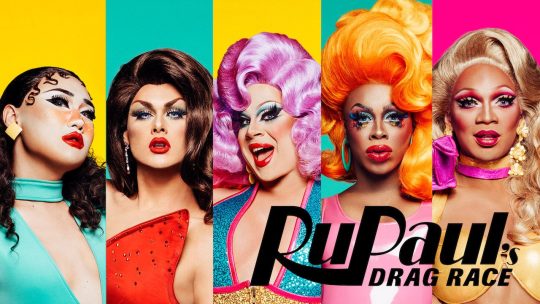
The Meteoric Rise of RuPaul’s Drag Race
Since its premiere in 2009, RuPaul’s Drag Race, created by World of Wonder, has become a cultural juggernaut (Lovelock 2019). The show features drag queens competing for the title of “America’s Next Drag Superstar.” Over the years, it has expanded into a business empire, spawning numerous spinoffs, smartphone apps, thrice-yearly fan conventions, and international versions in Thailand, Canada, the UK, and the Netherlands (Parrot Analytics 2019).
youtube
RuPaul’s Drag Race represents the high watermark of mainstream success for global drag culture. It has normalized the idea of the drag queen in the American mediascape and turned the art form into a lucrative enterprise (Brennan & Gudelunas 2017). However, drag’s journey to financial success and cultural acceptance has not always been straightforward.
Social Media Strategy: Engaging and Expanding the Fandom
A major factor behind the show’s success is its savvy use of social media. Drag Race contestants are encouraged to cultivate a strong social media presence. RuPaul frequently directs viewers to participate in the program through hashtags, and audiences eagerly support their favorite queens online (Sim 2024).

This strategy has paid off. The official RuPaul’s Drag Race YouTube generated 73.1 million and Facebook a further 47.5m views over the past 12 months. In the past year, one of the most highly watched video on the official Facebook channel generated 2.8m views (Favoured 2024). The constant stream of content, including makeup tutorials, behind-the-scenes footage, and live interactions, keeps fans engaged and invested (Feldman 2020).

Celebrity Endorsements and Mainstream Success
The show’s mainstream success is also bolstered by celebrity endorsements. Stars like Lady Gaga, Miley Cyrus, Khloe Kardashian, and Dita Von Teese have made guest appearances, further elevating the show’s profile. These endorsements bring new viewers to the show and generate buzz on social media platforms.
youtube
Additionally, Drag Race’s critical acclaim, including multiple Emmy wins, has helped legitimize it as a significant cultural phenomenon. The show’s success at award ceremonies has further amplified its visibility and popularity.
The Future of Drag in the Social Media Era
The sixteenth season of RuPaul's Drag Race premiered on January 5, 2024, continuing to push the boundaries of drag culture and its representation in mainstream media (Nolfi 2024). Its success is a testament to the power of engaging, entertaining content and a dedicated fanbase that keeps the momentum going on social media. Celebrity endorsements and an extensive online presence have further amplified its reach.
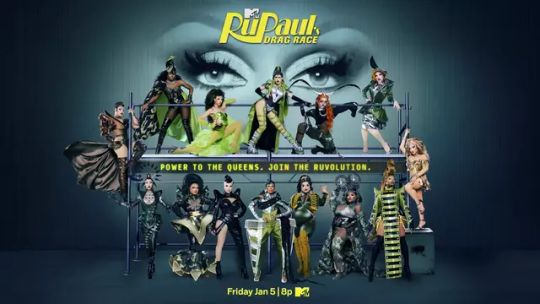
The show’s producers understand their audience and deliver exactly what fans want, leveraging the unique selling proposition of drag culture for all it’s worth. As drag continues to evolve in the social media era, it will be crucial to balance its newfound mainstream visibility with its roots in radical self-expression and resistance to dominant power structures.
RuPaul’s Drag Race has succeeded in social media world domination by embracing the power of viral content, strategic social media engagement, global accessibility, celebrity endorsements, and the entrepreneurial spirit of its contestants. The show’s ability to adapt and innovate in the ever-changing digital landscape ensures that its reign is far from over.
Reference list
Brennan, N & Gudelunas, D 2017, ‘Drag Culture, Global Participation and RuPaul’s Drag Race’, The Boundaries of Reality TV, Palgrave Macmillan.
Favoured 2024, ‘How has RuPaul’s Drag Race succeeded in social media world domination – Favoured.’, Favoured UK, viewed 2 June 2024, <https://favoured.co.uk/how-has-rupauls-drag-race-succeeded-in-social-media-world-domination/>.
Feldman, Z 2020, ‘RuPaul’s Drag Race: How social media made drag’s subversive art form into a capitalist money maker’, King’s College London, viewed 2 June 2024, <https://www.kcl.ac.uk/rupauls-drag-race-how-social-media-made-drags-subversive-art-form-into-a-capitalist-money-maker>.
Lovelock, M 2019, ‘Reality TV and Queer Identities: Sexuality, Authenticity, Celebrity’, QED: A Journal in GLBTQ Worldmaking, vol. 7, no. 3, pp. 211–214.
Nolfi, J 2024, ‘“RuPaul’s Drag Race” season 16 cast revealed: Meet the new queens’, Entertainment Weekly, viewed 2 June 2024, <https://ew.com/rupauls-drag-race-season-16-cast-revealed-8407797>.
Parrot Analytics 2019, ‘The global audience race for RuPaul’s Drag Race’, Parrot Analytics, viewed 2 June 2024, <https://www.parrotanalytics.com/videos/the-global-audience-race-for-rupauls-drag-race/>.
Sim, B 2024, ‘Watch the “RPDR” queens vote for who they’re most likely to block in this exclusive S16 E11 preview’, Out, viewed 2 June 2024, <https://www.out.com/gay-tv-shows/drag-race-s16ep11-preview#rebelltitem1>.
0 notes
Text
Week 4: "Shark Tank": Unveiling Entrepreneurial Narratives in Digital Communities
In the BBC article “Why reality TV deserves more credit”, Louis Staples delves into the intriguing world of reality television. Despite its often-dismissed reputation, reality TV merits recognition. The article highlights how shows like “Made in Chelsea” and “RuPaul’s Drag Race” have left their mark. While reality TV may not always receive critical acclaim, its impact is undeniable. Over the last two decades, it has grown exponentially, influencing culture and catapulting ordinary people to stardom. From Paris Hilton to the Kardashians, reality stars have become A-list celebrities. Even Donald Trump’s journey from reality TV to the presidency underscores its significance.
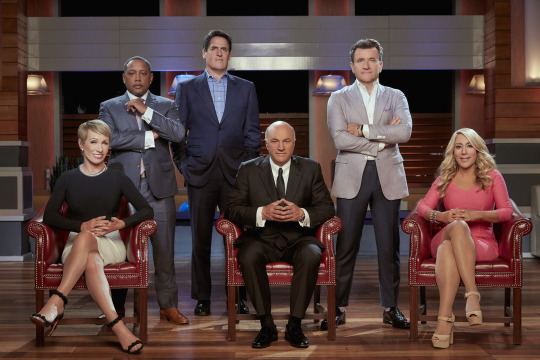
"Shark Tank," a paradigmatic reality TV series, transcends its ostensible role as a platform for business pitches. It serves as a captivating amalgamation of innovation, drama, and high-stakes negotiations, with entrepreneurs seeking investment from seasoned investors—the formidable "Sharks." This essay undertakes an academic exploration of how "Shark Tank" shapes digital communities and fosters entrepreneurial fandoms. Silverstone's advocacy for conceptualizing audiences as rooted in 'the reality of experience' becomes relevant in this exploration. This perspective emphasizes that experiences, including those derived from media consumption, possess inherent authenticity. (Silverstone, 1999)
"Shark Tank" establishes a virtual arena wherein entrepreneurs navigate nerves, rehearse pitches, and strategically present their ventures. Viewers seamlessly integrate into this community, participating in the collective experience by rallying behind favorite contestants and offering critiques on business acumen.
Certain pitches evoke profound resonance among the audience. Whether featuring a quirky invention, a heartwarming backstory, or a disruptive tech solution, these entrepreneurs garner a devoted following. The utilization of the #SharkTank hashtag on digital platforms has become a hub of excitement, serving as a space for fans to discuss deals, predict outcomes, and even share their entrepreneurial ideas. There is a power chronology at work in the temporal relations between television itself and audiences. (Hill, 2019)
The inherent premise of "Shark Tank"—investors vying for equity—sparks ethical inquiries. Questions arise about the fairness of rigorous negotiations with struggling entrepreneurs and whether the pursuit of profit occasionally overshadows empathy. The digital community actively grapples with these dilemmas, forming nuanced judgments.
In essence, "Shark Tank" transcends the conventional confines of reality TV by becoming a celebration of dreams and determination. The digital discourse surrounding the show transforms viewers into integral members of a global entrepreneurial community—one that appreciates risk-taking, applauds creativity, and believes in the transformative power of a well-crafted pitch. Whether one identifies as a Shark or a viewer, it is essential to recognize that every idea pitched is an opportunity to navigate the entrepreneurial waters and make waves in the vast ocean of business.
References:
Hill, A 2019, Media experiences : engaging with drama and reality television, Routledge, London, [England] ;
Silverstone, Roger 1999, Why study the media?, SAGE, London.
0 notes
Text
Week 4: Digital Community and Fandom: Reality TV Case Study.
Reality TV show has been a great category in terms of connecting people online. However, in recent years, with the rise of platforms such as Netflix, Disney+, Paramount+, Hulu, etc., there are some major concerns on the longevity of the aforementioned reality TV in the future. This does not mean that shows are not contributing anything at all for digital communities and my post will examine the role of reality TV shows in today's modern era. Fandoms have arisen as passionate and energetic groups that gather to celebrate common interests in the world of digital communities. This essay delves into the relationship between digital communities and fandoms, using the reality TV genre as an example. We'll look at the dynamics, effect, and significance of reality TV fandoms in the digital community space.
Fandoms are devoted groups of fans who share a strong passion for a specific television show, film, book series, or celebrity. Fandoms thrive in the internet realm, generating their own subcultures and providing opportunities for contact, discussion, and creative expression. Fandoms have an important role in defining how consumers interact with media, changing passive viewing into active engagement (Hills 2002).
Reality television has become a breeding ground for fandoms, enthralling viewers with its unscripted tales, engaging individuals, and dramatic twists. Shows such as "Survivor," "The Bachelor," and "RuPaul's Drag Race" have devoted fan communities who participate in spirited conversations, fan fiction, fan art, and other kinds of creative expression.
The digital community landscape creates an excellent environment for reality TV fandoms to flourish. Tumblr and other social media sites serve as virtual centers for fans to interact, share information, and engage in conversations. Hashtags, reblogging, and tagging help people find fan-created content, which fosters a feeling of community and enhances the fandom experience.
Reality TV fandoms in the digital community have a significant impact on the overall media environment. They create hype, affect show narratives, and alter audience impressions through conversations and critiques. These fandoms also help to create a participatory culture, in which fans actively interact with and contribute to the material they enjoy (Jenkins, 2006).
To wrap it all up, reality TV fandoms demonstrate the power and influence of digital communities in the world of entertainment. These fandoms exemplify how the digital community landscape can alter and improve the media experience by their passionate engagement, creative expressions, and active involvement. Reality TV fandoms on platforms such as Tumblr represent the active and dynamic character of internet communities, whether through impassioned discussions or fan-generated content.
References: Hills, M. (2002). Fan Cultures (1st ed.) [Review of Fan Cultures]. Routledge. https://www.taylorfrancis.com/books/mono/10.4324/9780203361337/fan-cultures-matthew-hills Jenkins, H. (2006). Convergence Culture: Where Old and New Media Collide [Review of Convergence Culture: Where Old and New Media Collide]. NYU Press.
0 notes
Text

Blacula at Sylvester, Bushwick, Brooklyn, 2024
Photo: Bruce Morrow
#the moment that#the moment that we are today#hashtag#hashtagupmyass#photographers on tumblr#original photography on tumblr#photography#bruce morrow#brucemorrow#art#nyc#bruce-morrow#digital art#my art#myart#themomentthat#Sylvester#blacula#halloween#drag#drag queen#drag race#rupaul's drag race#voxgama#Paris Hilton Als#crackhead Barney#artists on tumblr#photographers of tumblr#fine art photography#photogrpahy
8 notes
·
View notes
Text
Let's Be Real About Reality TV
Reality TV is a genre of unscripted entertainment that can range from a focus on ‘ordinary’ or famous people and their talents/phobias/quirks etc or real events or situations. Examples include: ‘Keeping Up with the Kardashians’, ‘Love Island’, ‘Masterchef’, ‘The Block’, ‘The Bachelor/Bachelorette’, ‘The Simple Life’ (starring Paris Hilton and Nicole Richie) and ‘RuPaul’s Drag Race’. Reality TV is often associated with being ‘trash’ (Time, 2019) (The Conversation 2015) and from first glance, you could say people who watch it because it’s mind-numbing and easy or maybe because it’s more relatable than fantasy/drama.
R. A. Deller 2019 book titled ‘Reality Television in an Age of Social Media’ delves into the phenomenon and analyses the theories of how reality TV is more than just mindless entertainment. Reality TV is argued that it “holds up a mirror to human behaviour and interactions” (Deller, 2019, p.153) causing debates on morals and beliefs, right and wrongs and how modern day society affects such. Currently being aired in Australia is ‘Married at First Sight’ and the recent scandal surrounding cheating has viewers discussing accountability and who should/shouldn’t be involved with calling it out. In this instance, Alyssa was angry about the scandal and erupted over the dinner table but wasn’t part of the immediate couples affected and had also mentioned she previously had a relationship with a married man prior to the show (Shah, 2023).

‘Charley Chadwick comments via Twitter’ [Screencapture], Twitter, 2023, viewed 01 April 2023 <https://twitter.com/?lang=en-gb>
The TV/film entertainment industry is a large money-making and influencing business and reality TV finds ways for companies to participate. Brands can use hashtags and incorporate ways to market their service, cast members can be sponsored for advertisements and endorsements and use their gained popularity to promote their own business. It is also important to understand social media and reality TV goes hand in hand with Twitter being a live and quick comments/opinions platform whilst episodes air, Instagram for the online presence of casts and to “extend the life of reality shows and their participants” (Deller, 2019, p.159) and blogs platforms for analysis/updates etc.
An interesting part of reality television is how real and authentic it is. We know there is money involved, a director, a cast, editors and a time limit for the airtime however we are made to believe that it is unscripted (for majority of the shows), spontaneous and raw. Ultimately, I believe directors, editors and the airtime limit rule how casts and storyline are presented. Abbie Chatfield was a contestant in The Bachelor 2019 and she was a victim of editing as, when she meets the bachelor and says he is an astrophysicist, the part where she says “I know this isn’t the same thing” is edited out to look like she has replied with just “Ok I’m a Gemini”. This went viral and she was portrayed as a naïve hyper-sexual individual which affected Chatfield as the public and their opinions can be ruthless (Lily, 2020). Chatfield’s experience on ‘The Bachelor’ echoes how the truth will almost always be skewered and the storytelling never genuine. Lastly, the idea that any ordinary person can be on TV and become famous/rich/influential through reality shows is questionable and the fine line between ordinary and extraordinary is blurred. Can anybody really be on TV?
Berman, J 2019, Trashy Reality TV is Back, Time, 21 February, viewed 01 April 2023, <https://time.com/5534364/reality-tv-is-back/>
Deller, RA 2019, ‘Reality Television in an Age of Social Media’, Reality Television: The Television Phenomenon That Changed the World, Emerald Publishing Limited, pp. 141–175.
Lily, A 2019, The Truth About The Bachelor’s Abbie’s Gemini Quote, Who Entertainment, 05 November, viewed 01 April 2023, <https://www.who.com.au/the-bachelor-abbie-chatfield-gemini>
McCoy, C & Scarborough, R 2015, The Guilty Pleasure of Watching Trashy TV, The Conversation, 20 May, viewed 01 April 2023, <https://theconversation.com/the-guilty-pleasure-of-watching-trashy-tv-40214>
Staples, L 2021, Why Reality TV Deserves More Credit, BBC Culture, 02 December, viewed 01 April 2023, <https://www.bbc.com/culture/article/20211201-why-reality-tv-deserves-more-credit>
0 notes
Text
Here's how I use shinigami eyes (not saying you have to do it this way)
I see a post that’s got a red name and click which leads straight to posts that have been heavily through the terfosphere, usually marked 'terfs do touch' 'rf gc do interact' and some of my muted tags. I open all the non red urls who reblogged from red urls, scroll to their main, ignore any intro and read one page of their blog. If they're cruel to a trans person within 10 posts they get marked. That's the low bar to pass. Ten posts without obsessing. Read more for length and word blergh.
The point of shinigami eyes is to mark transphobes not just radfems, it's just that radfems are bigoted 95% of the time, and a bunch that say they're not radfems/terfs have a post explaining that they don't align with the feminism part (anti choicers, women libertarians...). It's also important to keep going when there are no terfy indicators as there are a bunch of right wingers who also enjoy blogging about trans people as 'cringe content'.
It feels like doing something useful by not making trans folk have to see that vileness and I feel a strange responsibility as a brit and a feminist who started with the radical texts and knows them well.
I don't care who created the extension, it's useful and I can't exactly be picky from my slave and blood mineral computer chips on billionaire monopoly software.
There are things I'd very much like to discuss without it getting co-opted by bigots or turned into pile on fodder. It happens so fast and with such ferocious accusations that you have to be in a good head space and towards the start of the day so you can disable reblogs or delete a post if it gets into the wrong hands. Right now I'm marking about a dozen or more a week, it doesn't make you feel safe writing anything when you feel you have to check all reblogs on a post because a bunch won't be marked as haters before it's too late.
Word blergh ahead :
I want to be able to talk about what it means if scotland and wales leave the UK for someone who has family in all, about our femicide epidemic, about the teachers having to learn to deprogram boys from manosphere ideology, about women in stem, prison abolition, how alienated I feel from gender performance, how I think Dylan Mulaney is the most annoying toxic positivity theatre kid turning transition into hashtag content I can't stand her she's not even mean just so confident in her ignorance, and can I rant about women enforcement of patriarchy while also running support networks within churches but always being on edge for what they will or won't refuse support about, girl bullying and teen girl pressure hurting deeper, trans folk helping me rediscover gender euphoria and also how I find rupauls drag race reductive and catty. How I'm still furious the covid vaccine wasn't tested on pregnant women and we don't have data about covid and womb damage/period disruption when given the kind of cells involved we really should be seriously looking into it. I want to talk about male violence or female labour exploitation with the understanding that we're talking about the social constructs that we're all tangled up in. I want to talk about ugliness, medical misogyny, all the adhd things my dad could get away with
and I can't without having to stick asterisks everywhere saying I don't believe in gender essentialism, i do believe in patriarchy and if this doesn't apply to you congrats on being one of the good ones there are good people and my experiences as a woman are not universal
and I hate transphobes so much for hijacking what should be basic human rights for their culture war of distraction when we have so so many problems to deal with and yet this issue is so important because it's breaking the sex binary and comphet down and they're so scared they're recycling the anti-gay talking points without even filling the serial numbers off! The disruption to ideas about patriarchy is worth the fight even if there weren't flesh and blood humans getting hurt (it's a strong motivator though ilu all my gnc and trans friends).
I get so tangled: I think sending death threats is wrong, i regularly call for the death of the pope and posted about stoning king charles yesterday. I have catholic friends. I'm problematic and enjoy problematic media. I'm conflicted when I see quotes from books that helped me understand why I was so miserable back then and why the world was so unfair so much remains true. Those books also left huge fragments that didn't fit and by all that is dear to me: working class and black womanists provided the missing pieces then trans and non binary folk added more and then the disability activists who'd read all that and had more nuances to add, my heart.
I have so much I've held inside because of people who can't even be bothered with Dworkin's evolving philosophy of gender or that maybe we might have learned a few things since the Sixties because they take individuals like me and throw them to mobs and I really don't want to retraumatize my trans friends either. Aaaaargh.
It's complicated. I'd rather have to censor 'kill' and have hate speech enforcement to be able to speak openly about feminism or gender in general without the bullies swarming. I know for many that's just talking about any politics and it's silly to complain when I'm not even trans just a 'traitor' to these women but Tumblr had been safer, it's certainly a place where I haven't been attacked as much for being socialist. The mobs on twitter were frightening in scope, the ones on tumblr accused me of things that felt horribly personal. I feel like a big coward for not wanting to deal with fallout so I haven't shared some of the amazing feminist reading and learning I've been doing the past few years.
#saf#Personal#Long post#I hate reactionaries so much#Rambling about not being able to ramble safely#May not be coherent. It's been a rough day
1 note
·
View note
Text
love watching drag race with my mother 10/10 activity
5 notes
·
View notes